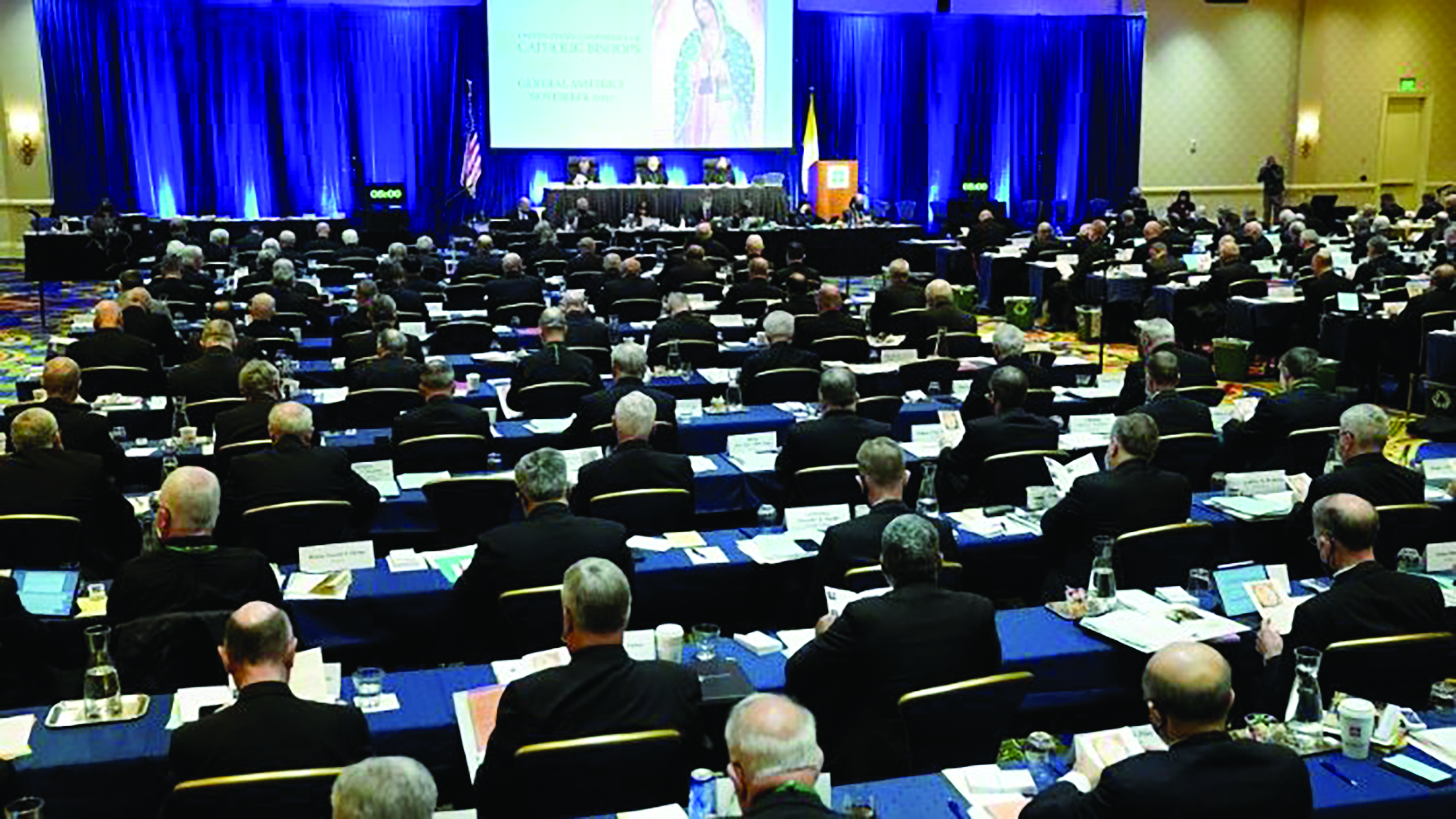Pope Francis called for greater acceptance of people with autism spectrum disorders and their families in order to break down the “isolation” and “stigma” that burdens them.

During an audience with people who have autism in Paul VI Hall at the Vatican Nov. 22, Pope Francis greets a child.
“Everyone should be committed to promoting acceptance, encounter and solidarity through concrete support and by encouraging renewed hope,” the Pope said November 22 during a meeting with people with autism disorders, also known as ASD, and their families, and with 700 participants in a three-day conference on autism and related disorders, organized by the Pontifical Council for Health Care Ministry.
Pope Francis called the daily challenges for people with autism spectrum disorders and their families “a cross” and noted the need to develop more “comprehensive and accessible” support networks.
The accompaniment of people with autism and their families must not be “anonymous or impersonal,” he stated. Rather, it must involve “listening to the profound needs that arise from the depths of a pathology which, all too often, struggles to be properly diagnosed and accepted without shame or withdrawing into solitude.”
The pope said support networks should extend to include “grandparents, friends, therapists, educators and pastoral workers,” who “can help families overcome the feelings that sometimes arise of inadequacy, uselessness and frustration.”
He thanked families, parish groups and various organizations for the care they provide people with ASD, noting that such care is the “direct responsibility” of governments, institutions and Christian communities. He concluded by encouraging researchers in their work of discovering treatments and therapies to help cure and prevent the disorders.
Pope Francis says we need to “break down the isolation and stigma that burden” people living with autism spectrum disorders. The Pope was speaking to participants at a three-day conference sponsored by the Pontifical Council for Pastoral Health Care entitled “The Person with Autism Spectrum Disorders: Animating Hope.”
Six hundred-fifty experts from 57 countries were joined in the Paul VI Hall Saturday by hundreds of parents and children affected by autism. Warmly thanking them for their “moving and meaningful testimonies” on what it means to live with the condition, Pope Francis spoke of the fragility of children and families suffering from autism spectrum disorders, describing the stigma and isolation they feel as a cross.
To meet their needs and break through their loneliness, the Pope spoke of creating a network of support and services on the ground that are comprehensive and accessible. This is the responsibility of governments and intuitions, he said, but also of Christian communities, parishes and friends. This, continued the Pope, would help families overcome the feelings that can sometimes arise of inadequacy, uselessness and frustration when faced with the daily realities of autism.
Pope Francis concluded with words of encouragement for academics and researchers in the field that they may discover therapies and support tools, to help and heal and, above all, prevent the onset of these conditions as soon as possible, while always safeguarding the inalienable dignity of every person.
Vatican Radio Translation of the Holy Father’s address
Dear Brothers and Sisters, Thank you for your welcome!
I am happy to welcome you at the end of your 29th International Conference organized by the Pontifical Council for the Pastoral Care of Health Workers, which I thank for wanting to realize such a commendable and relevant initiative, dedicated to the complex issue of autism spectrum disorders…
These conditions constitute a fragility that affects numerous children and, consequently, their families.
They represent an area that appeals to the direct responsibility of governments and institutions, without of course forgetting the responsibility of Christian communities.
Everyone should be committed to promoting acceptance, encounter and solidarity through concrete support and by encouraging renewed hope. In this way we can contribute to breaking down the isolation and, in many cases, the stigma burdening people with autism spectrum disorders, and just as often their families.
This must not be an anonymous or impersonal accompaniment, but one of listening to the profound needs that arise from the depths of a pathology which, all too often, struggles to be properly diagnosed and accepted without shame or withdrawing into solitude, especially for families. It is a cross.
Assistance to people affected by autism spectrum disorders would benefit greatly from the creation of a network of support and services on the ground that are comprehensive and accessible. In addition to parents, these should involve grandparents, friends, therapists, educators and pastoral workers. These figures can help families overcome the feelings that can sometimes arise of inadequacy, uselessness and frustration.
For this very reason, I thank the families, parish groups and various associations present here today and from whom we heard these moving and meaningful testimonies, for the work they carry out every day. I extend to all of them my personal gratitude and that of the whole Church.
Moreover, I want to encourage the hard work of academics and researchers, so that they may discover therapies and support tools to help and heal and, above all, prevent the onset of these conditions as soon as possible — all of this while paying due attention to the rights of the patients, their needs and their potential, always safeguarding the dignity of every person.
Dear brothers and sisters, I entrust you all to the protection of the Virgin Mary, and I thank you for your prayers. Now, all together, let us pray to the Blessed Virgin Mary for all health care workers, for the sick, and then receive the blessing. Hail Mary …






Facebook Comments